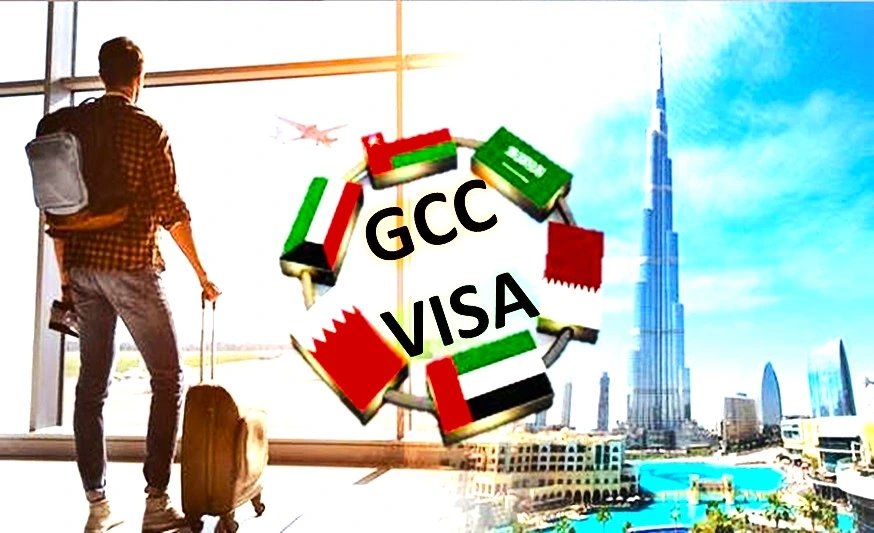
The United Arab Emirates, Saudi Arabia, Bahrain, Qatar, Oman and Kuwait have officially approved the introduction of a unified tourist visa for travelers wishing to visit the six Gulf states. Similar to the Schengen visa system, this long-awaited “GCC Grand Tours Visa” will allow visitors to travel to all six member states with a single visa, eliminating the need for separate applications for each country.
This major breakthrough in Gulf tourism was confirmed by Abdullah bin Douk Al Marri, Minister of Economy, at the UAE Hospitality Summer Camp on June 16, 2025.
Approved |& Implementation:
Minister Al Marri confirmed that the unified tourist visa has been formally approved and is currently awaiting implementation. According to his statement, the visa is currently being reviewed by the Ministry of Interior and relevant stakeholders and is expected to be implemented soon. This visa will facilitate the process of traveling between GCC member states, enhancing tourism and regional cooperation.
Benefits of the Unified Visa:
- Seamless travel in six countries: The primary benefit of the Unified GCC tourist visa is that travelers will not have to apply for multiple visas to visit different countries in the region. This streamlined process will make cross-border travel more convenient for tourists from all over the world.
- Boosting regional tourism: By removing visa barriers, this initiative is expected to boost tourism across the GCC. With the ability to travel freely between the UAE, Saudi Arabia, Bahrain, Qatar, Oman and Kuwait, tourists will be able to enjoy more extensive travel itineraries within the region.
- Economic impact: Tourism leaders are confident that the Unified Visa will significantly boost the Gulf’s hospitality and tourism industries, creating new economic opportunities. The increased visitor numbers are expected to increase demand for accommodation, transportation and other travel-related services.
-Increased business and leisure travel (leisure): Another promising outcome of this visa is the potential growth of “leisure” travel, where business travelers extend their trips to explore tourist destinations. This trend could lead to longer stays, higher spending, and a broader economic impact across the region.
Impact on tourism:
As a result of the unified visa, GCC countries are expecting a significant increase in tourism arrivals. According to tourism authorities’ projections, the number of visitors to the Gulf region is expected to rise to 128.7 million by 2030. This increase is expected to generate significant economic benefits, including job creation in the tourism, hospitality, and transportation sectors.
- Dubai’s growth: As a major tourism hub in the UAE, Dubai continues to lead the region in visitor numbers. In the first quarter of 2025 alone, Dubai saw 7.15 million visitors, a 7% year-on-year increase. With the introduction of the Unified GCC Tourist Visa, other countries in the region are poised to benefit from this growing wave of visitors, encouraging wider regional tourism and greater economic integration.
- Broader regional impact: Officials in Saudi Arabia, Bahrain, Qatar, Oman and Kuwait are similarly optimistic about the Unified Visa’s potential to drive growth in local economies. By encouraging more regional travel, the visa will help diversify tourism offerings, attract international travelers and strengthen the GCC’s position as a global tourism destination.
The Road-Ahead:
Currently, the GCC Grand Tours Visa is in its final stages of approval. UAE Minister of Economy Abdullah bin Taq Al Marri highlighted the importance of this initiative in attracting international tourists to the region and providing the opportunity to experience the diverse cultures, landscapes and attractions of the six GCC countries.
In addition to improving tourism access, the unified visa is expected to bring cultural exchange opportunities between GCC countries. The implementation of this visa could also be a step towards further regional integration in terms of tourism infrastructure, policy alignment and economic cooperation.
